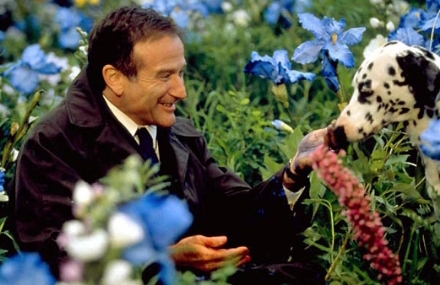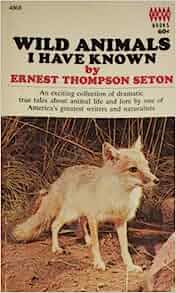|
Word Gems
exploring self-realization, sacred personhood, and full humanity
Editor's Essay
|
Do all dogs go to heaven? A strange question, but here’s something most haven’t considered.
|
return to "Animal" main-page
We're reminded of Robin Williams, "What Dreams May Come," being met by his dog in Summerland: "I must have really screwed up! - this is 'dog heaven'!" [smile]

That's funny. And we are convinced of the general rule, all dogs do go to heaven. Of course, the afterlife literature is replete with references of animal spirits finding and enjoying their own eternal life. See the Summerland page.
However, there may be exceptions. The following inset-box was written for an article dealing with brutality and propaganda, but it relates to the present topic.
Editor’s note: See the sequel to the following inset box – a discussion asserting that animals do not harbor “evil” in their persons.
|
Jekyl-and-Hyde canines, faithful sheepdogs by day, bloodthirsty monsters by night
It’s 1966 and I’m sitting in Mrs. Willardson’s English class. I’m excited because the monthly shipment from Scholastic Book Services has arrived, and I’ve purchased ten or more paperbacks. The cover prices were often only 60 cents, cheap even then, but students got a discount and could buy for something like 35 cents! It was great. Those were the days.
Every month I’d order books. Not that I read them all, mind you, I wasn’t yet disciplined enough to do that, but I just liked having them. However, one book I did read, and parts of it were so shocking that I still recall 56 years later.

Ernest Thompson Seton (1860-1946) offered, he said, “true stories” of animals he’d encountered. Among the most noteworthy is that of “Wully” the sheepdog, a very strange case of a pooch living a veritable “double-life.” By day, he attended faithfully to his master’s business, but by night “he became a savage, treacherous sheep-killer.”
Even more intriguing, with the publication of Seton’s book, other similar accounts were brought to his attention. “All told, I now have information of six of these Jekyl-Hyde dogs. In each case it happened to be a collie.” These duplicitous and vicious creatures “added to night amusements the crowning barbarity of murdering the smaller dogs of the neighborhood.” One of them “had killed twenty, and hidden them in a sand-pit.”
A certain image has lodged in my spirit all these years as it reaches for highest order of cunning, deception, and two-facedness.
The author vividly paints the scene concerning one of these dogs; it may have been Wully. In the early hours of the morning, the master happened to be awake and was ambling about the kitchen. Suddenly, who should bolt through an open window but Wully! On his fur and about his mouth remained bloodstains from the night’s escapades. Normally, Wully would have met his owner with a studied deference and feigned loyalty, but the dog realized that the evidence of its malfeasance could not be hidden. And now Wully turns into his real self, a snarling, menacing monster. The master backs away, keeping a wary eye on the canine. The dog moves in, about to pounce for its kill, but not before a steel poker from the fireplace was raised against the ogre, to end his devilish adventure.
the beast, the wild animal
When an animal, whose heart is laden with viciousness, feels itself threatened to the utmost; when it’s exposed for what it is, when the game's over, with realization that it’s now do or die, kill or be killed; it will invest all its energies to stay alive, at whatever expense. Desperate situations, the egoic inner-being counsels, demand desperate measures.
At the time of this writing, the whole nation is witnessing an example, writ large, of the spirit of Wully the conniving false-fronted one. At the highest levels of government, we see those of respectable, august office, exposed for what they really are. All these years they’ve been “raiding the neighborhood at midnight,” living the rapacious life in the shadows, but feigning service-mindedness, speaking in platitudes, smiling sweetly for the cameras.
But now they realize that, if certain ones come to power, it will be the end of their duplicitous treachery. No more chicken-coop larceny in the dark. See them now, of wild and crazed mind, foaming, attempting to defend themselves by sophistic ways and means; unwise, boorish, heavy-handed, illegal, criminal. But it’s do-or-die for them. And Wully knows that time is short, and this makes him reckless, lathered up, and more insane.
The Beast, or the Wild Animal, has made its way through history pillaging, brutalizing, taking what it likes from others. If required, to get what it wants, it will at times assume the guise of a “lamb,” a studied respectability, an outward veneer of civility. But, when he's backed into a corner, go for that poker now, as the real monster-heart will be coming out, and coming for you.
|
Most of us have not encountered a dog like Wully, and it makes us uncomfortable to entertain the concept. However, after sharing the story of the duplicitous dog, it was brought to my attention that James Herriot, too, offered testimony of a dog that killed sheep under cover of dark night.
Before I say more on this, let us also consider these comments from the “holodeck” writing:
|
addendum: the Dark Realms, too, are created by thought
Recently, while reviewing a taped testimony of Spirit-Guide Abu, I heard something which abruptly stopped me. Abu stated that the Dark Realms were not created by "upper management" to detain or punish malcontents who stumble into the next world. As we learn time and again, no one will ever pass judgment on us in the afterlife - we do this ourselves. Abu asserted that we, ourselves, create the Dark Realms. We ourselves do this by the power of thought, now cruising at hyper-speed in dimensions wherein "thoughts are things," virtually taking on a life of their own.
Consider the shocking implications and the parallels: For those who have begun to advance themselves, wondrous worlds such as "the spheres of love" open to them and are created by their own particularized desires.
But, if we labor in a self-imposed darkness due to malicious and evil conduct, one's personal mental darkness, upon crossing over, might spring into hard-edged existence, manifesting as fully-formed unpleasant worlds -- dwellings of our own making.
It becomes evident, as one studies the material on this subject, that we all create habitations for ourselves in the coming dimensions -- with the only question remaining, will the thought-prompted worlds be of pleasure or pain?
|
Ponder the implications. Unenlightened humans create the Dark Realms by power of thought. But what about animals? I don’t think there’s a moral issue in play with “law of the jungle” if that’s your natural environment. They didn’t jump they were pushed. Governor's pardon for all of them.
But, the really strange thing is, if a creature is as clever – not intelligent – as Wully to craft for himself a double-life, a smiling boy scout by day, but to hide victims in the sand, to raid the chicken-coops and the flocks by night, and then to have enough self-possession and savvy to know when a human is on to you, then this is really different!
I suspect that creatures, like Wully, with higher brain-power, but turned bad, create darkness in their “dog spirits” just as any other sentient entity would do.
Editor’s note: How widespread might be this phenomenon? The percentage, I suspect, is quite small; but measurable. Coming to mind is a pony we had on the farm when I was 11. He didn’t like being trained. No horse does, but this one was vicious, not so unlike Wully. I vividly recall it galloping very fast -- by its own prompting, its own decision -- parallel with a barbed-wire fence, just an inch or so away from the sharp barbs. This creature was smart enough to know that it could “scrape” me off its back with a strategy of dangerous proximity. My jeans were ripped on my thigh, and I still retain the scars from bloody wounds as reminder of equine sentience gone rogue. It knew what it was doing.
This would mean that there’s a whole other service industry over there for us – missionary work, not in “pet heaven” but, in the other place.

|
|
Editor's last word:
On the "evolution" page, see much discussion by biologists asserting that cooperation not competition serves as basis of the ecosystem.
|
|


